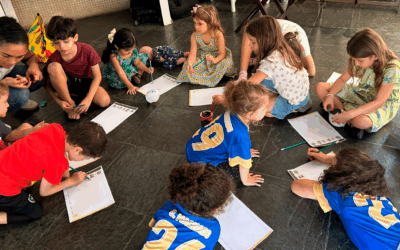The Second Vatican Council opened on 11th October, 1962.Sixty years later, we reflect on this historic and exceptional event in the life of the Church. “The Council now beginning rises in the Church like daybreak, a forerunner of the most splendid light. It is now only dawn. And already at the first announcement of the rising day, how much sweetness fills out heart.” These are the words spoken by Pope John XXIII on 11th October, 1962 at the conclusion of the solemn celebration in St. Peter’s Basilica, which ushered in a new era. Sixty years have passed since the opening of the Second Vatican Council, an ecumenical Council, that was universal, and a moment of great communion to face, in the light of the Gospel, the new questions posed by history and to respond to the needs of the world. The work of the Council, subsequently continued by Paul VI, lasted until December 1965. Just a month before the closure of this conciliar event Chiara Lubich, Founder of the Focolare Movement, wrote: “Oh! Holy Spirit, through what you have already suggested in the Council, make us become, a living Church: this is our only desire and everything else serves for this”[1]. These words are the fruit of the growing fervour that already animated the Movements and the new pre-conciliar Ecclesial Communities; an indelible sign of that “hermeneutical circularity which, by virtue of the action of the Holy Spirit in the mission of the Church, is established between the magisterium of a Council like Vatican II and the inspiration of a charism, like that of unity”[2]. But today, how should we view this anniversary? Vincenzo Di Pilato, Professor of Fundamental Theology at the Faculty of Theology of Puglia (Italy), tells us about it. Professor Di Pilato, what dreams inspired the desire to hold this Council? On 25th January, 1959, the last day of the Week of Prayer for Christian Unity, starting from the firm decision to convene a universal Council, Pope John XXIII tried to explain his intentions using terms that have become highly significant today, such as: updating, signs of the times, reform, mercy, unity. In the months before the opening of the Council, the Pope expected it to be an epiphany of the Lord (cf. Ex. ap. Sacrae Laudis, 6th January, 1962), which would lead Rome to become a new Bethlehem. As the Magi once did, the Bishops of the whole world would come to worship Jesus in the midst of his Church. Roncalli dreamed of a synodal Church, a Church leaving “the closed enclosure of its Upper Room” (10th June, 1962); a “Church of all, especially of the poor” (11th September, 1962) because the “purpose” of the Council coincided with that of the Incarnation and Redemption, or “the union of heaven and earth… in all forms of social life” (4th October, 1962). Why pause to reflect on this recurrence today? It is not an event like any other, but an indispensable occasion for a renewed awareness before a time of special graces. The Church, perhaps a little overburdened by her two thousand years, is encouraged to return to “dreaming”, that is, to relive that event again today, in the Spirit of the Risen One, with the certainty that He is here and will be “until the end of the world” (Mt 28: 20). What could the synodal process undertaken by Pope Francis mean other than to perpetuate Pentecost at all times and in all places? Moreover, in the period before and, above all, after the Council, the growing vitality of new Movements, such as the Focolare Movement and other aggregations of the faithful and Ecclesial Communities, have fostered a greater understanding of the principle of co-essentiality between the institutional dimension and the charismatic dimension of the Church. It is important to remember this synergy of the Spirit which ensures that the Church is never left alone in the face of the immense challenges that arise from time to time on the journey of history. In a word: the Church is the place of fraternity where the Kingdom of God begins, whose boundaries go far beyond those of the Church herself. Is the “co-responsibility” of the laity in the Church, a word attributable to the Council, still an open path… Yes, it is certainly a discourse in the making and is equivalent to recognizing the fundamental equality of all the baptized; to reviewing the relationship between priests and laity; to appreciating the circularity of vocations; to putting in place all the structures of communion and forms of synodality that are already possible; to focusing on episcopal collegiality and in the presbytery itself (between the clergy and the bishop); to discovering the co-essentiality of ministries and charisms; to promoting full reciprocity between men and women in the Church; to engaging in ecumenical and interreligious dialogue; to opening up an authentic relationship of dialogue with the surrounding world, with culture and cultures, to valuing capacity and willingness to listen, that familiarity with Christ gives us and refines in us; to promoting new attempts to give life to small lively local communities. In a word: to allowing Christ to emerge not only in what we say, but in the relationships we build with each other and at all levels.
Maria Grazia Berretta
[1][1] C. Lubich, Una nuova Pentecoste, from her diary, 11 November 1965, in La Chiesa, edited by B. Leahy and H. Blaumeiser, Città Nuova, Rome 2018, p. 69. [2]Piero Coda, on the occasion of the Convention “The Second Vatican Council and the Charism of Unity of Chiara Lubich”, Florence, 11-12th March 2022.




0 Comments